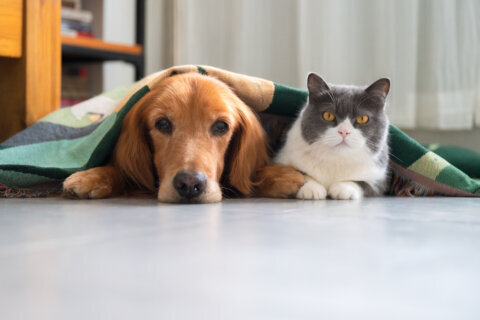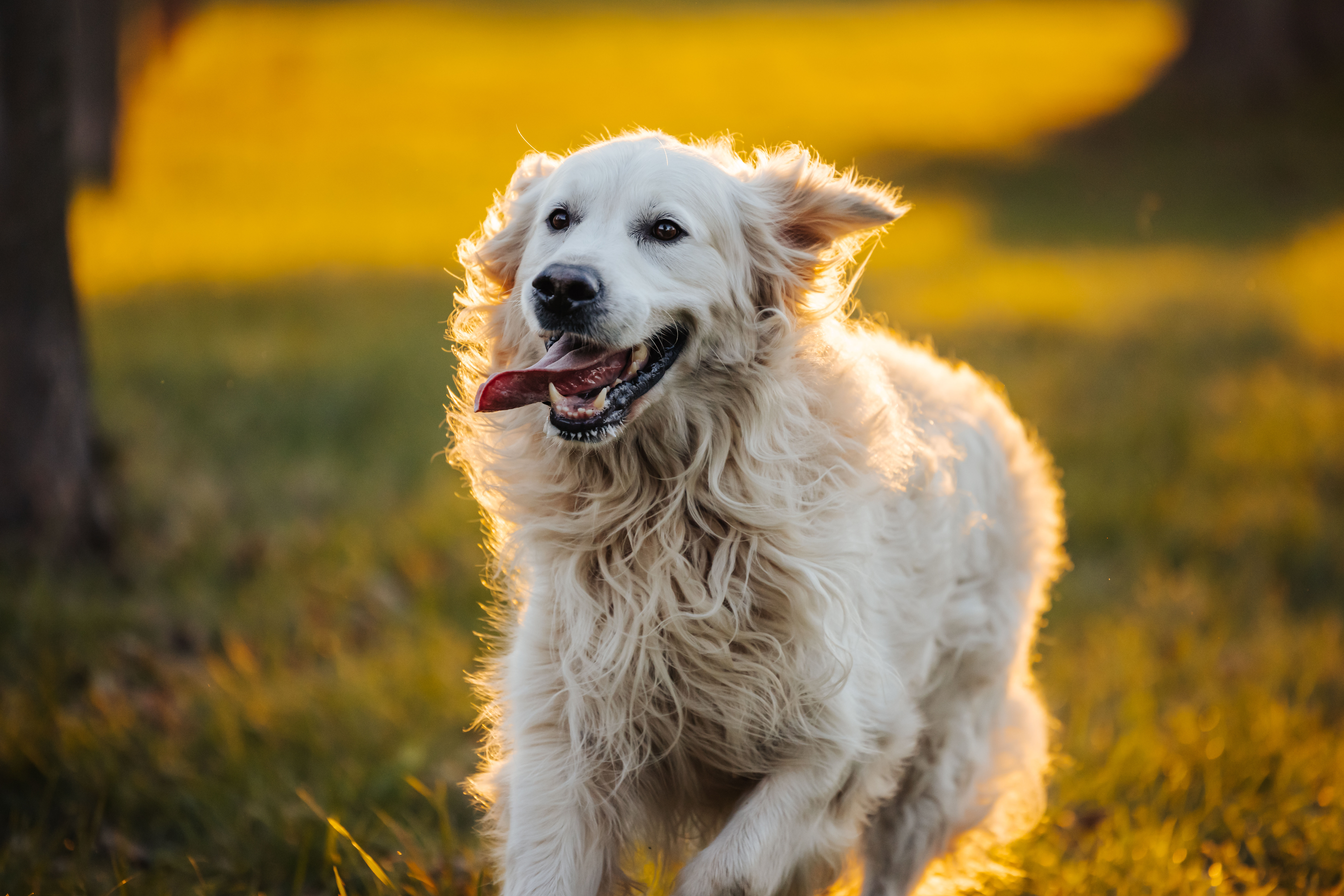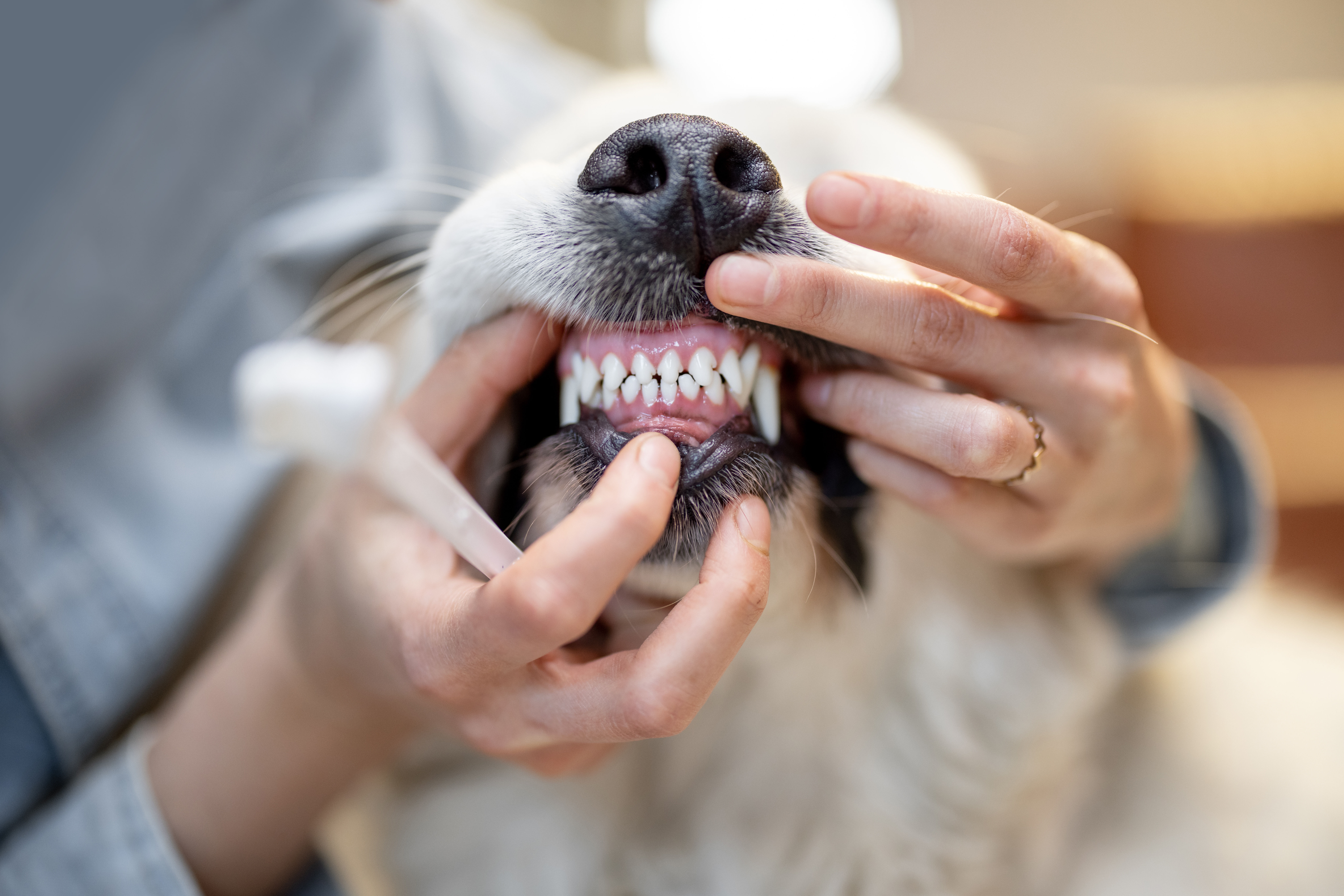This content is provided by Rocky Gorge Animal Hospital.
1. Chocolate
Chocolate is one sweet treat that is not only harmful to dogs, but is also toxic to cats. The level of toxicity varies based on the quantity of chocolate ingested as well as the cocoa content (type of chocolate). Signs of ingestion include stomach upset resulting in vomiting and diarrhea, restlessness, abnormal heart beat/rhythms, tremors and seizures, imbalance, and in some cases even coma or death. Knowing the type and quantity of chocolate ingested can be very helpful when it comes to treatment.
2. Grapes/Raisins
Grapes and raisins are another household food item that can be harmful to our furry friends. The exact cause of toxicity in grapes and raisins is not known, however it is estimated that a toxic dose is estimated to be about one grape or raisin per 10 lbs. of animal weight. The most common issue seen with ingestion is damage to the kidneys. Common signs of ingestion include vomiting, decreased appetite, lethargy, and increased thirst and urination. Grapes are seen to stay in the stomach longer allowing further absorption of the toxin which can lead to kidney failure if left untreated. It is important to seek veterinary care as soon as possible as these signs can be seen as early as 24-48 hours after ingestion.
3. Garlic/Onion
It’s important to be mindful when offering your pets table food as there are some seasonings and ingredients which are harmful. This includes ingredients like garlic, onions, shallots, chives, and leeks. Poisoning can occur with raw, dried, powdered, or cooked products, however the dried products are seen to be stronger and thus require a smaller quantity to reach a toxic level. Ingestion of these items results in damage to red blood cells and can cause a decrease in their numbers or anemia. Signs of toxicity are typically seen 3-5 days after ingestion and are a result of this decrease in red blood cells. These signs include depression, decreased appetite and diarrhea, vomiting, increased breathing rate, increased heart rate, weakness, exercise intolerance, yellow tinted skin/mucous membranes (icterus), red/brown colored urine, collapse, and in severe cases death.
4. Lilies
Food is not the only thing that can be harmful to pets. Certain plants and flowers can also be toxic. Lilies and other related plants are seen to be toxic to house cats and specifically cause acute kidney failure. All parts of these plants are seen to be toxic. Just a small amount of the plant has been seen to cause toxic effects in cats. In dogs, it may cause stomach upset and vomiting, but no negative effects on the kidneys have been reported. Signs of toxicity develop quickly over as few as 1-3 hours after ingestion starting with vomiting, drooling, and decreased appetite. These signs quickly progress to increased urination, dehydration, and eventually inability to produce urine. Death can be seen within 3-7 days of ingestion, therefore quick action is of the utmost importance.
5. Acetaminophen/Ibuprofen
Medications that we might think could help our pets if they are in pain or hurt can sometimes end up doing more harm than good, such as Advil (Ibuprofen) or Tylenol (Acetaminophen). Although these medications can help us, they are actually dangerous for our four-legged friends. It is important to consult your veterinarian prior to administering any medications that weren’t specifically prescribed by a doctor. The most common sign seen are stomach upset resulting in vomiting and diarrhea (in some cases with blood). At higher doses in dogs, these medications can cause stomach ulcers, toxic effects on the liver and kidneys. In cats, common signs include damage to red blood cells and difficulty breathing. In extremely high doses some of these medications can even cause toxic effects to the brain and the nervous system.
If you think your pet may have ingested something that may be harmful or toxic please call one of these numbers listed below and bring them to the closest emergency hospital for care.
- ASPCA Animal Poison Control Center: (888) 426-4435
- Pet Poison Helpline Animal Poison Control Center: (855) 764-7661
If you would like to schedule an appointment for your furry friends, please contact Rocky Gorge Animal Hospital at (301)-776-7744 or email at rgah@rockygorgevet.com







